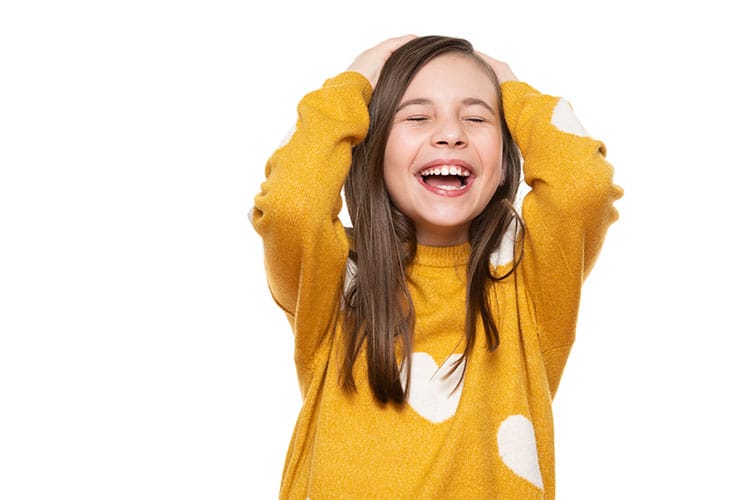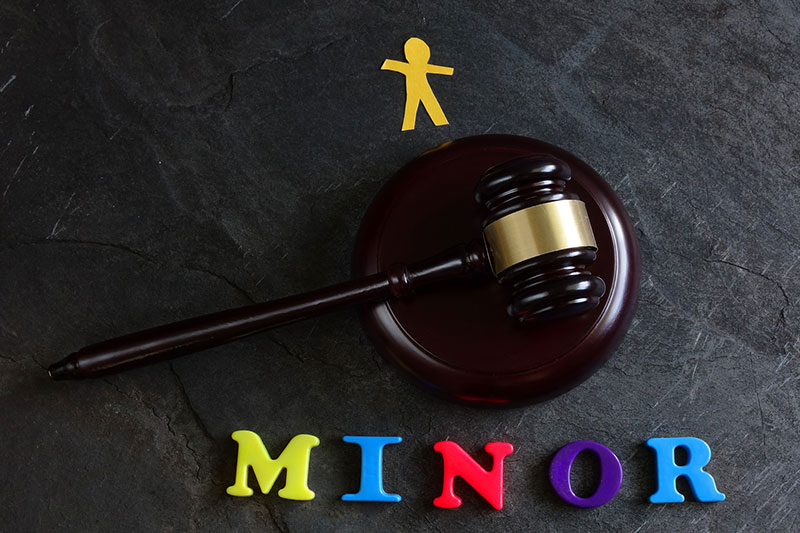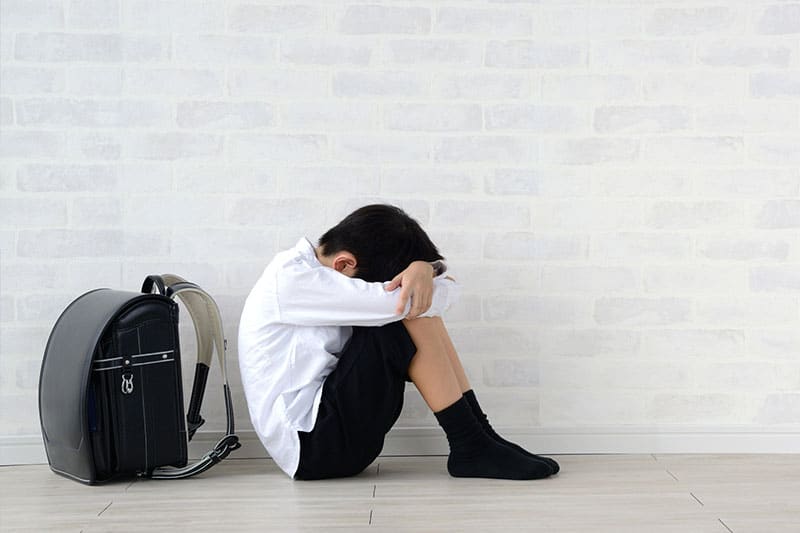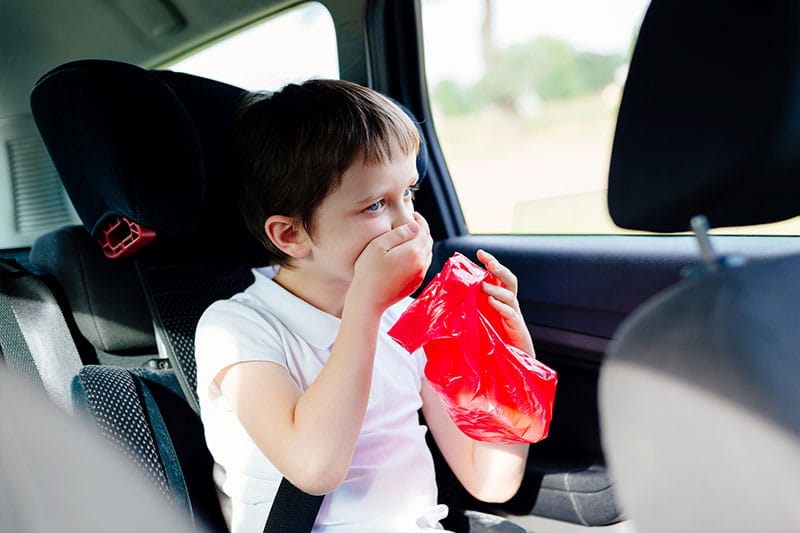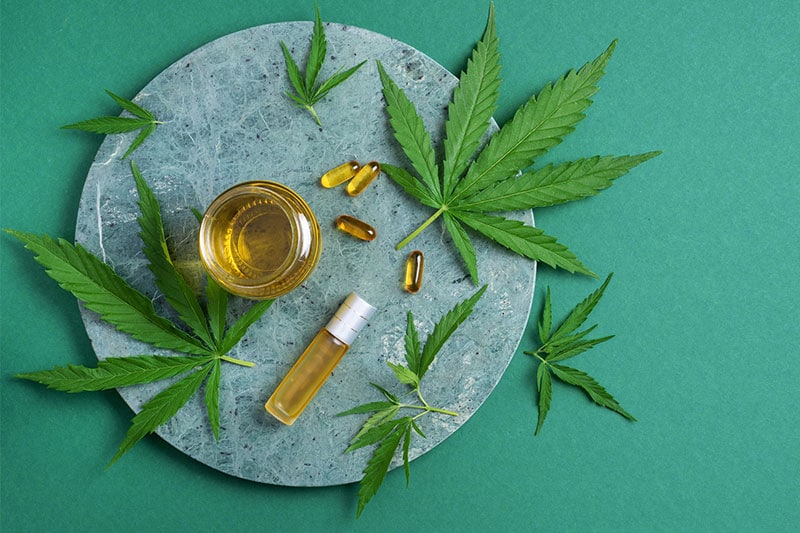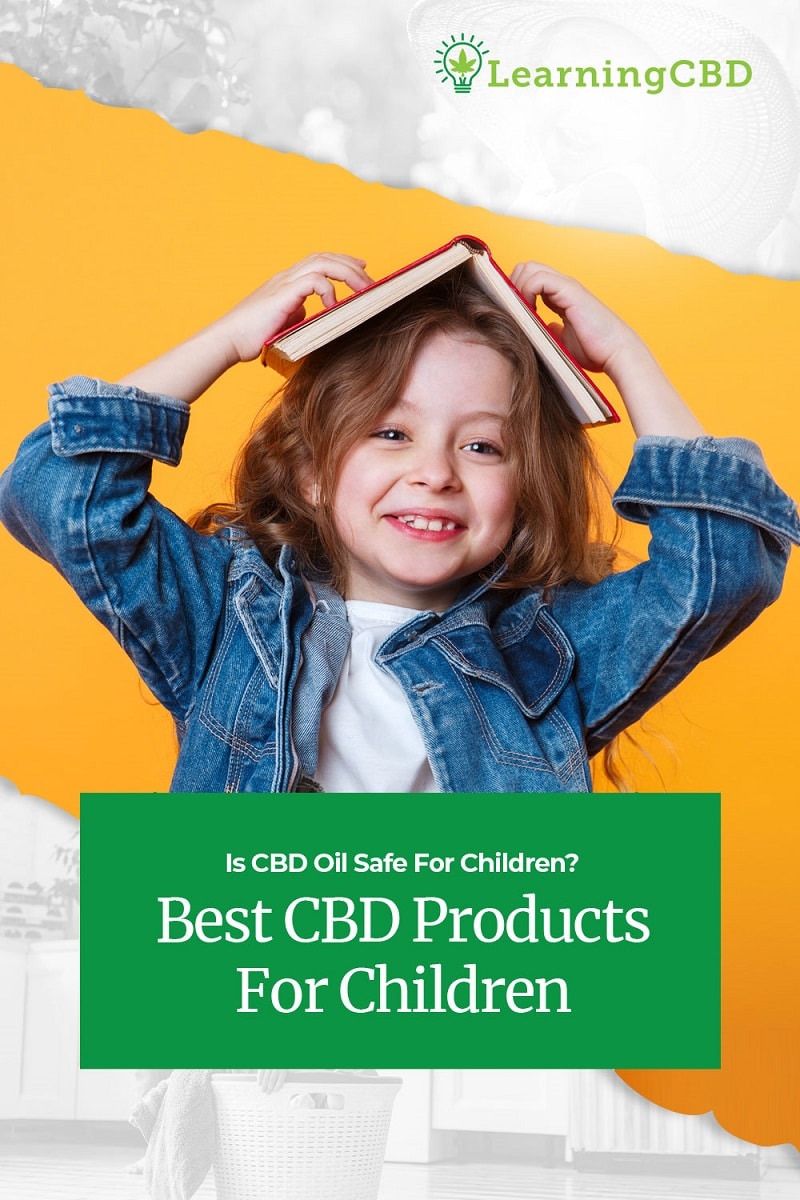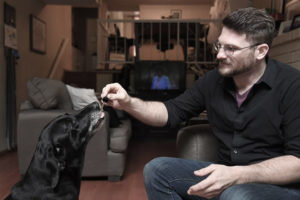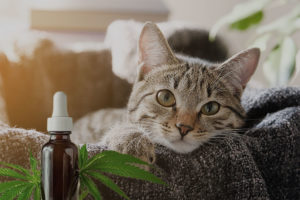The mention of cannabis and children in the same sentence might raise a lot of concerned eyebrows as parents would want to steer clear of anything for their children that remotely relates to recreational drug use.
But does that apply to CBD products too? Well, as insane as it might sound today, CBD has been gaining momentum in proving skeptics wrong for all the right reasons. While we still have a long way to go, recent studies have shown the potential CBD has for alleviating pain, nausea, anxiety, stress, and several other ailments.
With this growing popularity, many parents are wondering if CBD products are safe to use for their children. There is a lot of misinformation regarding CBD products on the internet, and we are here to provide you with the right, up-to-date information to clear all your confusions as a newcomer.
This list entails everything you need to know about giving CBD products to your children. We will cover legality, the benefits of CBD oil for children, dosage, and much more.
Without further ado, let’s get started.
What Is CBD Oil And Why Should You Care?
If you are new to cannabis but willing to learn more, you will come across terms like CBD and THC quite frequently. Both of these are chemical compounds or cannabinoids, found in the Cannabis Sativa plant. You can get these compounds from both hemp and marijuana variants of this plant.
THC, the psychoactive cannabinoid, is found more prominently in the marijuana plant, as it has greater concentrations of the compound. Cannabidiol or CBD, on the other hand, is non-psychoactive, so you will not experience any intoxicating effects from its consumption. However, it can have several therapeutic benefits that we will discuss later. Moreover, the concentration of CBD is higher in the hemp plant as compared to the marijuana plant, so companies usually get the CBD for their products from hemp.
Does this matter? Yes, because you need a higher concentration of CBD to get the most out of it. Consuming low concentrations of CBD will deprive you of its much needed therapeutic benefits. CBD Oils contain 20% cannabinoid content per volume of liquid, so they are a safe and effective way to add CBD to your child’s routine.
Extracting CBD Oil is a simple process, and you can even do it in your kitchen. Once you have the right equipment, it gets easier. Additionally, the extraction of industrial, hemp-derived CBD Oil uses the shoots, roots, and stems of the plant. These parts of the hemp plant are CBD-rich and perfect for the whole process. People prefer using ethanol-based extraction methods, which ensures the naturally-existing chemical ratios of the cannabinoids in the final product.
How CBD Affects The Endocannabinoid System
We mentioned the therapeutic benefits of CBD earlier, and there is a need for more scientific research to get a better understanding of this magic cannabinoid.
However, current evidence suggests that hemp-derived CBD might play a role in reducing the symptoms of several disorders that affect children, including epilepsy, ADHD, autism, anxiety, etc.
How does this happen?
Well, the real magic happens in the endocannabinoid system of our bodies, where cannabinoids like CBD and THC bind to receptor cells located in the brain and muscle tissue. These receptor cells are responsible for regulating essential bodily functions such as mood, appetite, sleep, etc.
While THC behaves differently, the interaction of CBD with our endocannabinoid system benefits the whole body, providing an overall sense of wellness. CBD can alleviate both mental conditions such as anxiety, stress, and physical discomforts, including muscular pain, spasms, inflammation, etc.
The Legal Status of Hemp-derived CBD for Children
Giving recreational cannabis to children is completely unacceptable, and we do not support giving any products to children that contain THC, as its intoxicating effects are not suitable for individuals under the age of 21.
However, hemp-derived CBD products that contain a trace quantity of THC are acceptable and legal in the United States of America. Legality means that the cultivation, distribution, and sale of such products do not have any restrictions. Every state has policies of its own, and you should research your state laws before buying or consuming any form of CBD products.
While hemp-derived CBD with 0.3% THC will not have any psychoactive effects on your child, if you plan on giving CBD to them for medical purposes, you should always consult with a doctor or physician.
CBD Oil for Children – Does it help?
Although there is a need for more scientific evidence to back claims supporting the therapeutic benefits of CBD Oil in children, the FDA recently approved Epidiolex – a pure, oral solution of CBD to treat two severe forms of epilepsy in children. The study concerning the approval of this drug showed that 20-milligram dosages of pure cannabidiol are well-tolerated in young children.
Surprisingly, the limited research that we do have about the benefits of CBD for children points in the right direction. As more countries become open to exploring CBD products as a potential treatment for several health problems, the future looks bright for this active ingredient of the cannabis plant.
Here is how people around the world are using CBD to alleviate symptoms of some disorders and chronic conditions that affect children.
ADHD
ADHD or attention deficit hyperactivity disorder is a psychological condition that affects more than 6.1 million American children as of now. It is more common in children, but around 4.1% of American adults also regularly deal with ADHD symptoms during their lifetime.
Children affected by ADHD usually develop symptoms at a young age, which include impulsive behavior, hyperactive tendencies, trouble concentrating on a single task, or inability to sit in the same position for lengthy periods. These symptoms can disrupt daily activities and make it difficult for your child to perform well.
Treatment options range from therapy to certain medications such as Adderall that can relieve chronic symptoms. However, ADHD medications come with a ton of side effects that can be harmful to your child, which is why parents are seeking alternative and safe remedies.
The calming, stress-relieving properties of CBD make it perfect for addressing the most common symptom of ADHD – hyperactivity. CBD can also be beneficial in relieving additional symptoms that are associated with ADHD, including headaches, difficulty sleeping, etc.
Learn more about CBD Oil for ADHD here.
Childhood Asthma
Asthma is a chronic condition of the lungs and the most common non-communicable disease that affects children. Childhood asthma is the leading cause of hospitalization, emergency room visits, and missed school days. Symptoms range from difficulty breathing, coughing, and wheezing.
Since children have smaller airways as compared to adults, they are more prone to developing complications from asthma. Their airways can become easily inflamed when an allergen such as pollen or dust particles enter the lungs, resulting in an asthma attack.
Sadly, there is no permanent treatment for asthma, but your child can lead a healthy life by taking preventive measures and minimizing symptoms. Certain asthma medications, such as corticosteroids, can have long-term side effects.
CBD is a natural inflammatory compound that reduces swelling of the airways and acts as a preventive treatment for asthma attacks. We do not recommend using CBD as an emergency treatment instead of quick-relief inhalers. However, adding CBD to your daily routine can reduce mucus buildup and relax the airways, countering the immune response that can lead to an asthma attack.
Learn more about CBD for Oil Asthma here.
Anxiety
The stressful routine of school, social interactions, and homework can take a toll on your child’s physical and mental wellbeing. Staying quarantined and isolated at home during the COVID pandemic has also been a difficult time for children. Such factors can contribute to their anxiety and stress levels.
Feeling anxious as a kid is quite common, and most children can get by without specific medicines and counseling. Still, the relaxing properties of CBD make it a perfect short-term treatment for anxiety. CBD reduces hyperactivity in the brain and helps clear the mind, promoting an overall sense of comfort.
Learn more about CBD Oil for Anxiety here.
Autism
According to recent statistics by the Centre for Disease Control (CDC), 1 in every 54 children in the U.S. develops autism spectrum disorder at a young age. Autism refers to several physical and psychological conditions that challenge communication, social skills, and brain development of the individual.
Autism may affect the whole body, and we have no permanent treatment for the disorder as of now. Certain medications, as well as speech and occupational therapy, can be beneficial for the patient. However, some of these medications come with harmful side effects.
Recently, scientists and medical experts are exploring CBD as a potential treatment for relieving the symptoms of autism. CBD can regulate mood, reduce stress, and prevent seizures. Daily consumption of CBD may reduce the symptoms of autism and help your child lead a healthy and prosperous life.
Learn more about CBD Oil for Autism here.
Epilepsy
We mentioned earlier how there is only one FDA-approved drug known as Epidiolex that contains an oral solution of CBD. Epidiolex is beneficial in treating two rare forms of epilepsy in children, including Lennox-Gastaut syndrome (LGS) and Dravet syndrome.
The approval of Epidiolex as a treatment for epilepsy is one of the reasons why CBD has become so popular nowadays. Epilepsy is a common childhood disorder caused by abnormal brain activity, resulting in repeated episodes of seizures, unusual sensations, and loss of awareness. Much of the research behind CBD for epilepsy used case studies on children, and now we have a better understanding of how beneficial it can be for preventing seizures.
The story of Charlotte Figi
Charlotte Figi, a young girl with a rare form of epilepsy known as Davets Syndrome, made headlines in 2013 when her parents opted for CBD as a treatment. Before trying CBD, Charlotte was going through a terrible time, experiencing intense, repeated episodes of seizures every week.
After consulting with several doctors and trying different medications to no avail, her parents decided to explore a hemp-derived CBD-rich extract to treat her symptoms. She started experiencing positive changes in the first week of her treatment. Moreover, her seizures became less frequent and decreased from almost 300 to only a couple per week.
The story of Charlotte Figi attracted the attention of media outlets, shocking medical experts, and contributing to the popularity of CBD around the globe. It has also propelled more research efforts into the medical benefits of CBD. Sadly, Charlotte passed away at the age of 13 due to complications arising from the COVID-19 disease.
Insomnia
Whether it’s attending online classes or playing video games, children are spending an unhealthy amount of time in front of screens these days. Overexposure to screens before bedtime can signal the brain to stay active, making it difficult for children to fall asleep. Sleep disorders are common among children and can develop into a long-term problem if not addressed properly.
Children also become very irritable and may refuse to go to bed when asked, further contributing to the problem. Worried parents are trying to find safe and effective methods to deal with insomnia in children, and CBD is a suitable choice. CBD promotes sound sleep and does not produce any intoxicating effects on the body. All it does is reduce hyperactivity in the brain and relax the person, allowing them to fall asleep without effort.
Learn more about CBD Oil for Sleep here.
Motion Sickness
The inner ears contain nerves specifically designed to send signals to the brain regarding your position on the ground and your balance. If this part of your nervous system becomes dysfunctional, especially if you are inside a vehicle or a boat, you may experience motion sickness.
Let’s take an example.
Imagine a child sitting in the back of a moving car, reading a book, their eyes not being able to see what is going on outside. While their eyes might not see it, the inner ears will sense the motion of the car, sending conflicting signals to the brain. These uncoordinated signals cause nausea, vomiting, and an upset stomach – common symptoms of motion sickness.
Our endocannabinoid system controls the region of the brain that is responsible for feelings of nausea. CBD, a natural cannabinoid, decreases the breakdown of endocannabinoids in our body and prevents nausea.
Learn more about CBD Oil for Nausea here.
Skin Conditions
There are a variety of CBD topicals and skincare products that you can use to address skin conditions. Some of these conditions originate from the gut, liver, or an autoimmune response, and you can use CBD Oil to manage them.
For muscle pain or conditions on the surface of the skin, topicals are a good pick. Some of these include psoriasis, eczema, sunburn, etc.
Is CBD Oil Safe for Children? – Potential Side Effects of Using CBD Oil
Trying out a new wellness product can be tricky as you need to have a clear understanding of any potential side effects that you may experience from its consumption. CBD is quite convenient in this regard, and the World Health Organisation has declared CBD safe for consumption, with no public health risks and potential for dependency, making it a suitable product you can give to your child.
However, there are few side effects of CBD that you should know about before trying. While the majority of people will have a safe experience with CBD, some might feel temporary changes that bear no risks. If these changes persist for more than a week, we advise you to discontinue its usage and seek immediate assistance.
Moreover, CBD can also interact with any medication that your child might be taking regularly and decrease its availability in the body. So, again, you should always consult a doctor if your child is on any prescription drugs.
Nevertheless, here are some of the side effects of CBD that you should look out for:
- Fatigue
- Dry Mouth
- Diarrhea (extreme cases)
- Changes in mood and appetite
Things Parents Should Consider Before Giving CBD to their Children
By now, you should have a clear understanding of what CBD is and how your child can benefit from it. CBD has a safer medical profile than most of the drugs that help treat disorders we mentioned above. However, there are still a few factors that you should consider before buying any CBD products for children:
CBD is Not Weed!
CBD and THC are completely different cannabinoids, and they interact with our endocannabinoid system in distinct ways. They also have varying functions and effects on the body. CBD is not marijuana. THC is the active compound in marijuana, and it binds with CB1 receptors to produce a mind-altering effect. Products high in THC content are not ideal for kids, so parents should steer clear of them.
Dosage Plays A Significant Role.
The right dosage can do wonders and increase the effectiveness of your CBD routine. While it is not possible to overdose on CBD, we still recommend starting with low doses and working your way up to the top. You can determine the most suitable dosage for your child this way. Your child’s experience with CBD can vary depending on their age, height, and type of symptoms.
Read the labels!
Reading the label of your CBD product is very important to get a better idea of what you are giving to your child. It usually contains information about the manufacturer, so that you know about the company’s reputation in the market, reducing the chances of you getting a substandard product. It also contains serving sizes and the amount of CBD you are getting per dose.
Products Are Sometimes Falsely Advertised
Some companies are unreliable when it comes to marketing their CBD products. The product might contain more or less CBD content than they advertise, and you also might not be aware of any additional active ingredients present in it. We recommend choosing only the best brands in the market to get a high-quality final product.
The Legal Status Of Cannabis is in a Constant State Of Flux
Although hemp-derived CBD is legal for cultivation, manufacture, and sales in the U.S, with the recent elections taking place, we do not know how things will be in the future. We can only hope for the best and try to get the most out of what we have right now.
The Best CBD Products for Children
Finding a safe and easy consumption method for your children can be difficult because you never know how they might react to a specific product and whether they will like it or not.
If you are a concerned parent looking to try CBD as a treatment for their child, there are several products you can choose from, including CBD oils, CBD topicals, edibles, gummies, etc. We are here to inform you about the ones which are suitable for you and your kid:
CBD Oils
CBD Oils are probably the most convenient way to give CBD to your children. They come in small, dark bottles to prevent light from entering and disrupting the chemical composition of the extract. The bottles also have a dropper for accurate dosage.
You can choose between flavored and unflavored varieties, anything that suits your child the best. If they do not like the earthy, natural taste of hemp in the oil, you can always mix it in their favorite drink or food and mask the flavor.
CBD Gummies
CBD gummies are also a great way to add CBD to your child’s daily routine. They come in different flavors and taste like regular gummy bears that kids already enjoy very much. You can also divide them by cutting them into small pieces and changing your dose based on your needs.
However, we suggest supervising all the doses as kids might mistake it for candy and eat one too many of these CBD-infused gummies.
CBD Topicals
CBD Topicals are perfect for your children if they have any skin conditions such as dermatitis, skin rashes, acne, etc. Topicals contain a specific concentration of CBD, so you do not have to worry about calculating doses or experimenting with different products.
All you need to do is apply the CBD topical to a smaller region of your skin so that any allergic reactions are noticeable. If no such reactions occur, you can continue usage on larger areas of the skin and get the most out of your experience. Topicals get absorbed readily and bind to cannabinoid receptors in there to get instant relief from pain, inflammation, and other conditions.
What to Avoid?
While CBD might be safe to consume on its own, not every product is suitable for children, and you should know what to avoid when choosing the best one. Here are a few products that you should avoid altogether:
Alcohol-Based CBD Tinctures
CBD tinctures are alcohol-based extracts that contain CBD. They are easy to consume, and you have to place a few drops under the tongue to get instant effects. Although tinctures might be a safe way to consume CBD for adults, we do not recommend using it for children. Why? Because children should not be taking anything that remotely contains alcohol, it is against the law and unacceptable.
Nevertheless, some brands market their CBD oils as tinctures, so you should do your research before opting for them. Also, make sure all your products are third-party lab tested, so you have a clear understanding of what’s inside them.
CBD Concentrates
CBD concentrates are an extremely potent form of CBD, containing almost 99% pure cannabidiol. Therefore, we do not recommend giving CBD concentrates such as isolates, distillates directly to children. Even adults who are new to CBD should avoid using concentrates. Only the most experienced and regular CBD users should opt for concentrates. Start with low dosages and find the one specific to your needs.
CBD Capsules
CBD capsules are a handy way to consume CBD. They are easy to take and accurate in dosage, but we do not recommend using them for children under the age of 8. Younger children have smaller airways, and they do not know how to swallow a pill on their own. There are chances that CBD capsules might get stuck in their throat, resulting in discomfort and sometimes a medical emergency.
Vapes or any other smokable method
Vaping CBD-infused juices and smoking a CBD strain is only for individuals over the age of 18 and adults. Children should avoid consumption methods such as vaping and smoking at all costs.
Choose From The Best CBD Brands in The Market Right Now!
People trying out CBD products for the first time do not know where to start. There is so much information available out there that it is possible to get tricked into buying substandard products.
With CBD emerging as a potential treatment for a variety of conditions, having the right knowledge about its benefits can set you on the right track, especially if you are new to it.
We are here to provide you with in-depth information backed by scientific research so that you make the right decision when choosing a CBD product for yourself. We strive to bridge the gap between consumers and some of the best CBD brands in the market right now. Visit our shop now and discover premium quality CBD products at affordable prices. Happy shopping!
Conclusion: Is CBD Oil Safe for Children?
If used correctly, CBD has the potential to help millions of children around the world. Studies have shown that it can alleviate the symptoms of several health conditions that affect children, including ADHD, asthma, anxiety, insomnia, and many more.
Unlike THC, it also does not have any intoxicating effect on the body. CBD can help us achieve wellness, feel better, and do better in our lives. Moreover, it affects children in the same way it affects adults, and there is enough proof to back these claims right now.
The best part about CBD is that anyone can use it if they are willing to follow a few simple steps to enhance their experience. It has minimal side effects and no potential for dependency. We believe that CBD should be available to everyone in need around the globe.
To wrap it up, you should always consult with your doctor or family physician before trying any alternative treatment such as CBD or any other related products.
FAQs About CBD Oil for Kids or Children
Question: Is CBD Oil Safe for Children?
Answer: Yes, hemp-derived CBD Oil is safe for children, but you may have to supervise dosage and make sure your child is not on additional prescription drugs that may react with CBD and cause harm.
Question: Can my child get high on CBD?
Answer: No, your child will not get high on CBD as THC is the psychoactive ingredient in the cannabis plant and responsible for its intoxicating effects. CBD is safe to consume and has therapeutic benefits.
Question: Can you overdose on CBD?
Answer: No, you can not overdose on CBD. The World Health Organisation has declared CBD safe for consumption with no public health risks and potential for dependency.
Question: What is the recommended dose of CBD for Children?
Answer: 20-milligram doses of CBD are well-tolerated amongst children, but we recommend starting with low dosages and experimenting so that you can determine what suits you best.
Question: What are the best CBD products for children?
Answer: CBD edibles, gummies, oils, and topicals are the most suitable products for children. They are easy-to-use and pretty safe as far as consumption is concerned.
